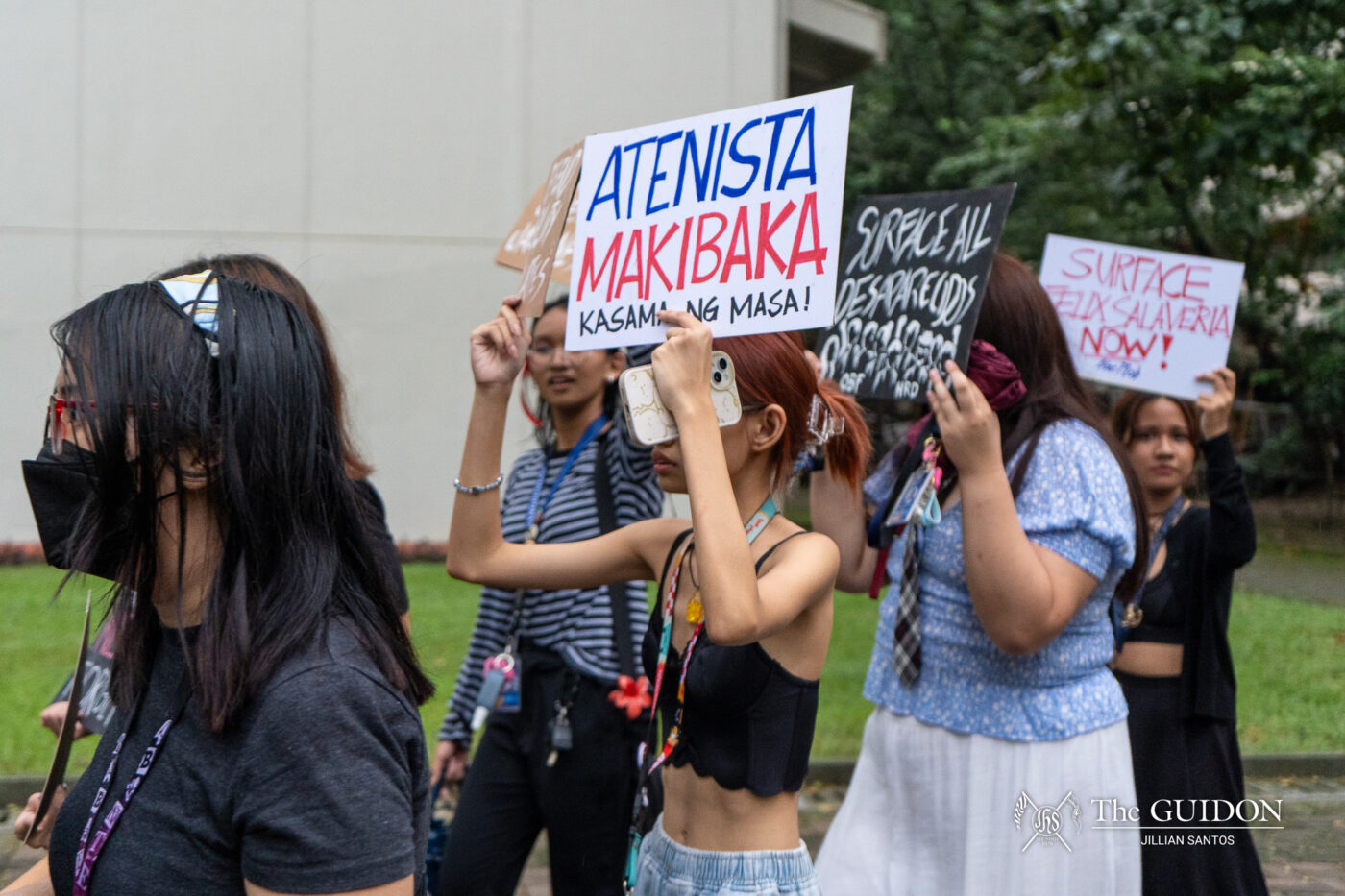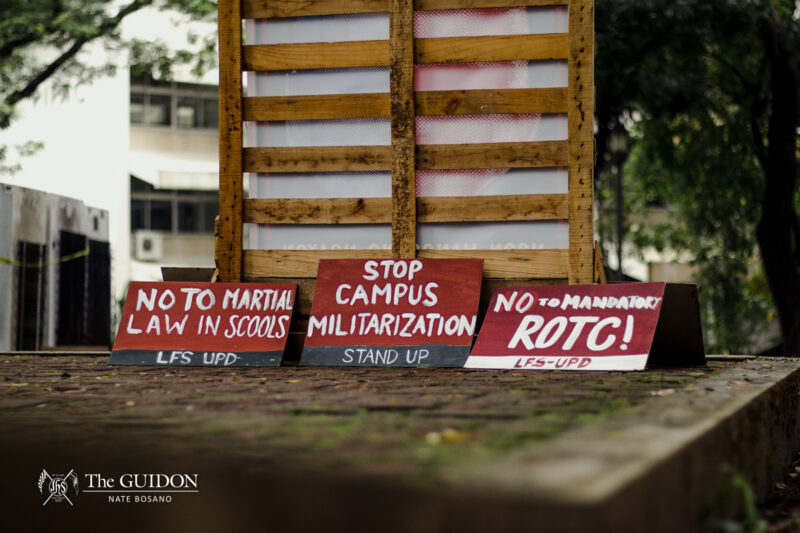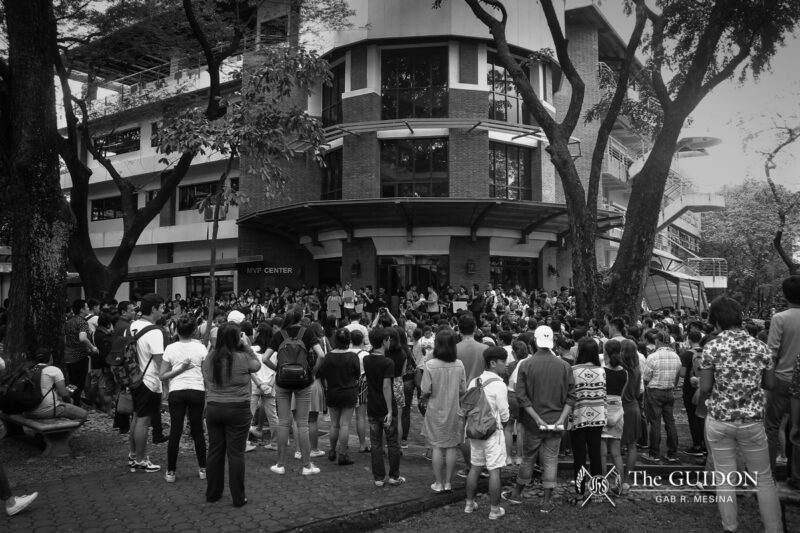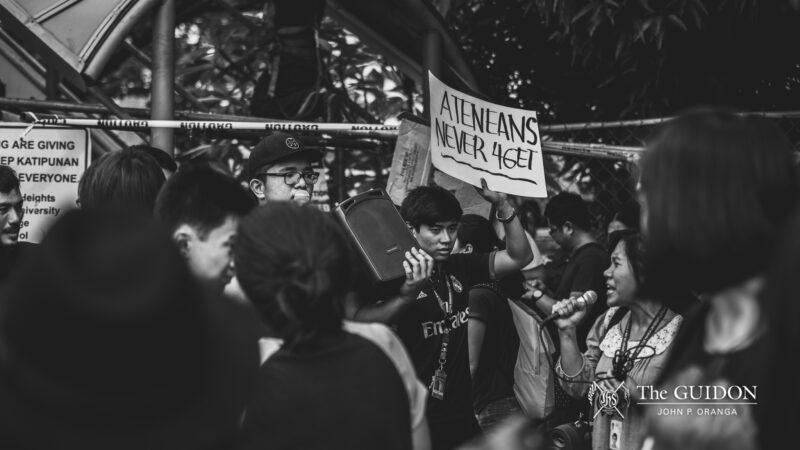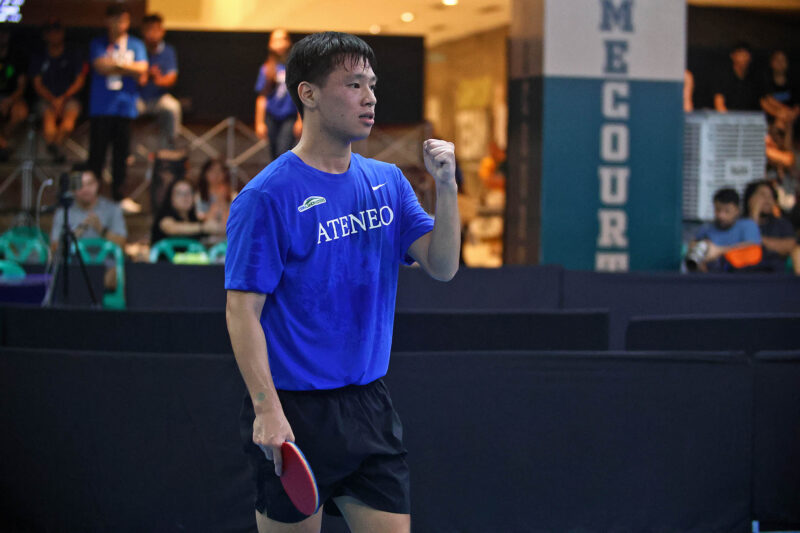The fight for Filipinization and liberation of the Ateneo University must go on. In the school like ours where the constructive activities of the students are often ignored and condemned simply because they threaten the tradition values of the school, it is easy for every student activist to get discouraged; the tendency is to become lethargic – wala na talagang pag-asa. The moment we succumb to this temptation we will just stock in the face of those progressive students who have already given much even to the point of giving their young lives. And so, let us continue the fight they have started. The more our just demands are continually ignored and subjected to selective inattention, the more we should put fire on the already burning battlefield of activism. So, if it is necessary, let us have more boycotts and manifestos. The bigger they are, the more students they will involve, the greater the tension they generate – the better. Jose Rizal would put it: “When we are in the struggle, it is necessary to redouble all of our effort.” Perhaps, this is the only way of showing the administration that there is a wide existing disparity between the ideals and the accomplishments of the university.
Let us face it. Reforms in the university can only come from those “at the vortex of power”. Those who harness the reins of the university are the ones to institute reforms. Ultimately, they are the ones who decide whether another Simbulan is on the way out. But although the final decision on anything that concerns the university depends upon the administration, particularly the President, the students are always free to disagree and physically express such disagreement. We are always free to voice out our opinions and beliefs contradictory as they are to what the administration believes in. The point that I am driving at is that we, students have a contribution to give in radically orienting the school. Just as administrators feel responsible to the future of the university, we also have a responsibility to the university. After all, we are the ones affected. Thus, since we are very close to the university problems, we should always be on guard. At this time of political and educational crisis, the need for us to pause and think is a must. We need, for instance, to stop and honestly reflect whether the kind of education we are receiving gives us ample opportunity to cultivate nationalist ideas, or, what is worse, blinds us to the particular need of the majority of our people. If it is indeed true that our Ateneo education does not adapt its system to the problems of the community around us, then, by all means, let us rise and make our shouts of protest and discontentment echo in the hallowed walls of the university. This is better than just remaining in silence. Let us remember that gone were the days when all the students could do was to say amen to whatever their good and holy friar teachers wanted them to do.
That students, if united, could be effective agents of reforms was proven when university finally gave up to the demands of the students for the inclusion of Pilipino Literature in the curricula. I doubt very much whether such a change would have been implemented had not the students, particularly the Student Council, made so much noise about it. Ever since the famous Simbulan-de Guzman case started last summer, the students had been asking Fr. Araneta to explain to the whole student body the real reasons for the ouster of the two professors. Unfortunately, the Rector just turned a deaf ear. What finally pressured Fr. Araneta to give his “side” – which some students found “malabo” — was the continuous pickets, manifestors and boycotts of the students. These are but manifestations of the growing strength of the students. That this trend is also a universal phenomenon cannot be denied.
But how about the noise and temporary disturbances of classes which the students create? I say they are to be expected. One cannot expect to see a group of idealistic students, fighting for what they believe is right, gathered together without these sad and unfortunate incidents arising from the assemblage.
I brought this point on disturbances because as a result of the July 9 boycott, seven students are now facing disciplinary charge for alleged ”…preventing and threatening students or faculty members or school authorities from discharging or entering school premises.”
If the seven students are proven guilty, they will be expelled. But if they have something to teach us, it is this: that there are certain things in the life of a progressive student worth expelling for. It is about time we realize that real education is after all not simply the time spent memorizing somebody’s lecture for an exam to get an A; neither can we limit education to mere transmission of knowledge, development of one’s analytical skill and finally, getting a diploma. Rather, real education should help the students realize not only his ability to know, but also his potentials to be. As Renato Constantino would say: “Education must be seen not as an acquisition of information but the making of man so that he may function most effectively and usually within his own society. Therefore, education cannot be divorced from the society for a definite country at a definite time.” If the university keeps on threatening and expelling students everytime they make a firm stand and agitate for meaningful reforms, the Ateneo will fail to produce leaders who will care enough and have courage enough to work and sacrifice for the country’s amelioration. If such is the case, it is better that Ateneo closes itself down.
If there is anything at all which the seven student activists have conclusively proven it is this: the involvement is the crying need of the hour. One had to get himself involved in the burning issues of the university whether he be an indifferent scholar, a reactionary seminarian, or a contented “burgis.”
I, therefore, challenge all Ateneans to wake up from their complacent slumber. Get rid of yourselves of that badge of non-involvement and passivity. It is utterly useless for me to tell you not to risk: the essence of your youth, of your sense of meaningfulness, the the taking of risks, of assuming roles, of experimenting new ways of bringing reforms, of fighting any form of standardized suppression that blocks nationalist principles and ideals.

